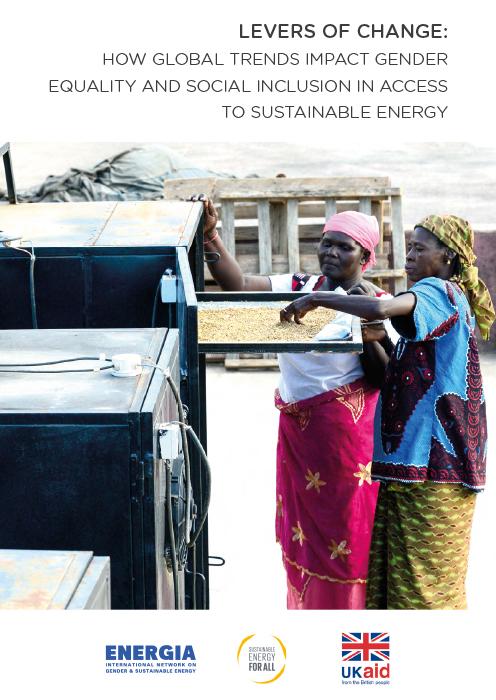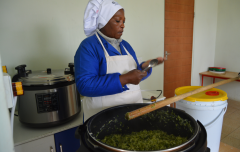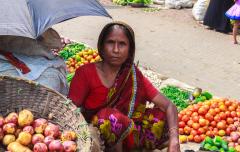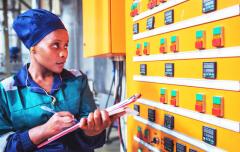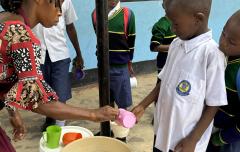Levers of Change: How Global Trends Impact Gender Equality and Social Inclusion in Access to Sustainable Energy
Achieving gender equality in energy access will be impacted, driven, or hampered by several upward trends: the decentralization of energy services, affordability of energy services, mobile payments, women’s entrepreneurship, urbanization, and humanitarian settings. This scoping report provides a scan of these trends from both a global perspective and in the context of five countries: Nigeria and Tanzania in Africa, Bangladesh and Myanmar in Asia, and Haiti in the Caribbean. Analyzing each of these trends in the national context will help policymakers propel energy access strategies from the perspective of how they would be best designed and deployed to reach both men and women.
The report, Levers of Change: How Global Trends Impact Gender Equality and Social Inclusion in Access to Sustainable Energy, provides powerful evidence of how women are often not given an equal chance to take advantage of some of the key trends. For example, while solar off-grid and mini-grid systems are often the lowest-cost option for closing energy access gaps in Sub-Saharan Africa, many poor women live outside formal financial systems, including access to consumer finance, that would enable them to finance a solar home system or a clean cooking stove. Another indicator of this challenge: While global access to mobile phones is increasing, women living in low- and middle-income countries are 10 percent less likely than men to own a mobile phone.
The report also showcases how countries are taking specific actions to take bigger advantage of these trends, both for expanding energy access for their overall populations and for women in particular. Tanzania stands out with strong gender policies across multiple sectors, including energy, and a thriving offgrid solar home system market backed by a strong mobile money system. Bangladesh is on a path to reach universal electricity access by 2030, thanks largely to solar home systems that have been deployed with the help of government subsidies and loans.
These efforts have produced numerous positive gains for women and girls, such as reduced kerosene consumption, reduced time collecting fuel and increased time for schoolwork after dark. Nigeria’s pay-as-you-go solar market is trying to open up, but the country’s banking sector is making it difficult for rural populations to access mobile money that would enable energy access.
We hope that this scoping report will help identify barriers and opportunities for taking bigger advantage of global trends that offer promise to achieve faster, broader gains on energy access – especially for women who are often being overlooked and left behind in the sustainable energy transition.

